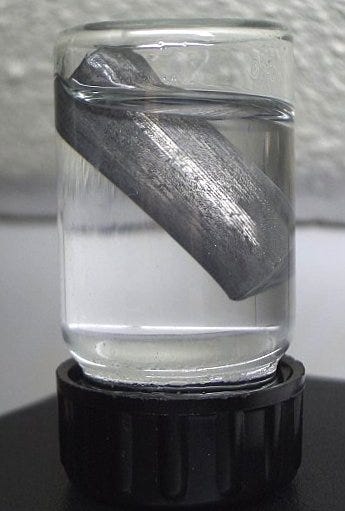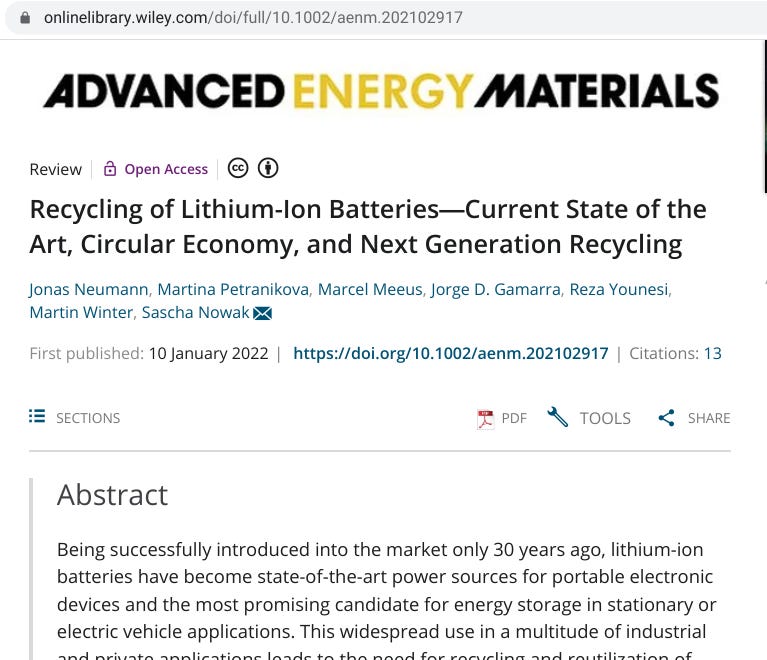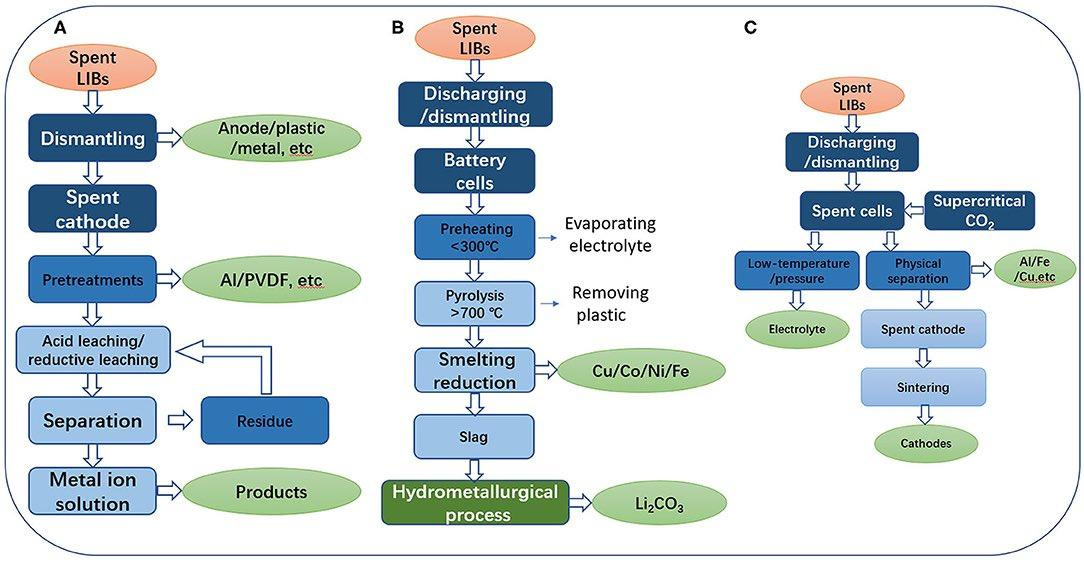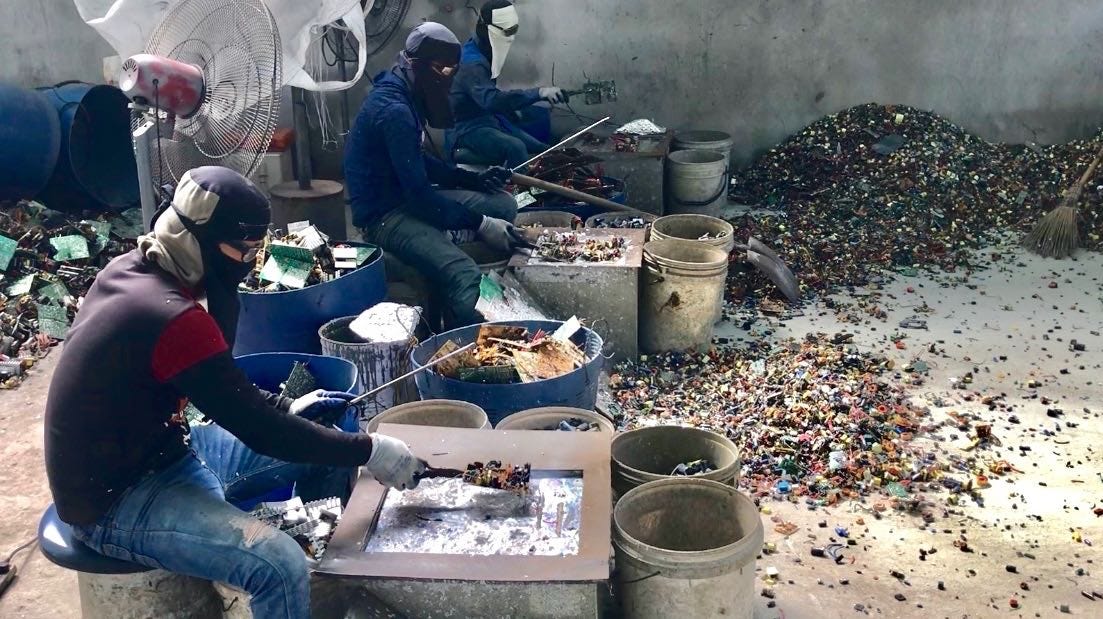The Recyclable LiOn and other Bedtime Stories
Once upon a time, there was a Perpetual Recycling Machine
Once upon a time, there was a happy, clean, green, sustainable LiOn Battery.
After many years of hard work, it was worn out. Not to worry! The poor tired LiOn can easily be recycled to make another happy, powerful LiOn to replace it! Presto, magic.
One problem is that Li is a bizarre element and is extremely energy-intensive to mine and process. Atomic Number 3, it is a soft, silvery-white alkali metal. It is the least dense metal and the least dense solid element. The nucleus of the lithium atom verges on instability, since the two stable lithium isotopes found in nature have among the lowest binding energies per nucleon of all stable nuclides. Because of its relative nuclear instability, lithium is less common in the solar system than 25 of the first 32 chemical elements even though its nuclei are very light: it is an exception to the trend that heavier nuclei are less common. [Source: Wikipedia]
But even more relevant, Li metal is highly reactive and flammable and does not occur in nature as a pure element. When purified, it must be stored in vacuum, inert atmosphere, or inert liquid such as purified kerosene or mineral oil. All isotopes are unstable save two. It is markedly less abundant in the universe than other elements. “This is a result of the comparatively low stellar temperatures necessary to destroy lithium, along with a lack of common processes to produce it.” Wikipedia.
“A major challenge in the recycling of LMBs results from the high reactivity of metallic lithium.” Advanced Energy Materials, Recycling Lithium-Ion Batteries—Current State of the Art, Circular Economy, and Next-Generation Recycling.
Processing and attempting to recycle Li is very dangerous, energy and resource-intensive, and is pollution-generating.
Good luck with the recycling. There are three methods. Consider some of the steps: Dismantling / Discharging? Spent? Cells? Cathodes? Supercritical CO2? Removng plastic?
Read this!
Then start at the “discharging - dismantling” step. Human labor. Lots of labor. Risks of burns, fires, exposures to toxic things. Which human beings should be chosen to perform such a Virtuous task as this? How should we select them? How about a Tribute process as in the Hunger Games?
Now the Chinese already have a Human Tribute solution for that problem, but then there is a larger problem: There’s no way to ship tired LiOns all the way to Xinjiang without burning down everything on the way.
All of these processes are wildly more costly and dangerous than mining and manufacturing brand new batteries ad infinitum. Because of Entropy. It spoils everything!
For more Fables, see:
Dust Bunnies, Civilization, and the Circular Economy Fable
To Support Nuclear Power is to Support Civilization. Orders of magnitude more production of what we need with orders of magnitude less burden on Mother Earth which provides for us all.











I think the important thing to remember with all of this is that recycling is only economically and thermodynamically viable when primary energy is cheap.
With cheap electricity and heat, we would recycle EVERYTHING. When electricity and heat get expensive, recycling costs more than it outputs.
Fossil energy is just not cheap enough- we need to reduce the cost of primary energy by 10-100x, so that means nuclear...
You can always recycle, but what solar cheerleaders call recycling is just grinding up solar panels and adding them to concrete or asphalt. Undoubtedly you can do the same with Li-ion batteries. A big humongous grinder takes batteries by the tons, mixes with sand, and out comes feedstock for concrete or asphalt. Recycled. As Rationalista states with cheap, plentiful energy you can do much better than that. You just dump the batteries into liquid nitrogen, freeze them rock solid, then pulverize them into a fine powder, send that powder to flotation where it is separated into various basic materials, like silicon dioxide, carbon, aluminum, copper.
You can also do something similar in a plasma furnace just blast the stuff to molecules. No way it is economical now with current material prices, but it does keep landfills less full. But the point is if you have plentiful energy you can recycle everything, at least to basic elements, for those who claim industrial civilization will run out of copper, nickel, cobalt, rare earths, etc. The only critical resource is energy, and with fission or fusion we have at least a 100Myrs supply.